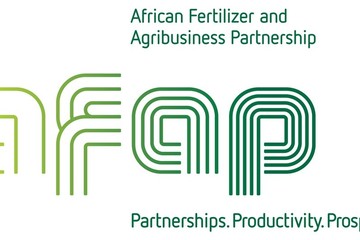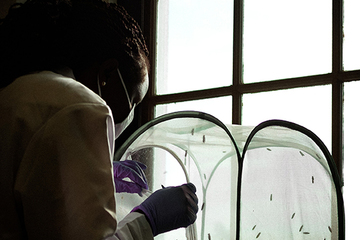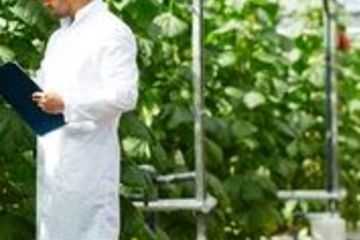Browse
Agri Food Systems
Starting September 28th, WE4F’s Regional Innovation Hubs (RIHs) will host four virtual kick-offs. The hubs work with innovators, investors, and other partners to provide technical and/or financial assistance, improve enabling environments, and develop other regional activities. Each RIH will discuss the countries they cover, their operations, and what comes next. Learn more about each hub and find out how to become a partner: https://we4f.org/innovator-news/join-the-we4f-regional-innovation-hub-virtual-kickoff-calls
By:
Amy Jamison
Monday, Aug 16, 2021
AGRI-FOOD SYSTEMS
+1

No Preview Available
Leave a comment
Gender-Specific Livelihood Strategies for Coping with Climate Change-Induced Food Insecurity
This study assessed the livelihood strategies adopted by husbands and wives within the same households for coping with climate- induced food insecurity in Southeast Nigeria. Collective and bargaining approaches were used in collecting individual and intra- household-level data of 120 pairs of spouses in Southeast Nigeria; husbands and wives were interviewed separately. Focus group discussions, key informant interviews, and household surveys were used to elicit responses from the respondents. Quantitative data for the study were analyzed using percentage, mean scores, and multinomial logit regression analysis. Results of the study revealed that 90% of the wives were more food insecure than their husbands (79.2%). The respondents noted that the observed changes in the climate contributed immensely to their food insecurity situation. To cope with food insecurity, a slightly higher proportion (47.3% and 14.2%) of wives adopted on-farm and non-farm strategies, respectively, while men (39.8%) adopted more off-farm strategies (38.5%). Additionally, results of the multinomial logit regression revealed that market distance and credit access significantly influenced the choice of husbands’ and wives’ engagement in off-farm livelihood strategy; sourcing infor- mation on climate change issues significantly influenced women’s choice of engagement in off-farm/non-farm strategy; and receiving remittances significantly influenced men’s choice of engagement in non-farm strategy. The study concluded that, although women play crucial roles in addressing food insecurity within their households, gender-specific obstacles typically impede their abilities to cope with climate-induced food insecurity.
By:
Ifeoma Anugwa
Monday, Aug 16, 2021
AGRI-FOOD SYSTEMS
Leave a comment
Web Presentations: Harnessing the Power of Data for Smallholders Data and the Path to Food Security
Check out these webinar presentations on Harnessing the Power of Data for Smallholders Data and the Path to Food Security, shared by African Fertilizer and Agribusinesss Partnership.
Follow the link to see all the recorded presentations.
https://www.afap-partnership.org/webinar-presentations-harnessing-the-power-of-data-for-smallholders-data-and-the-path-to-food-security/
By:
Elaina Lawrence
Monday, Aug 16, 2021
AGRI-FOOD SYSTEMS

Leave a comment
African Futures Feature Series: Deborah Ruth
Dr. Deborah Ruth Amulen from Uganda is a lecturer at Makerere University, in the Department of Livestock and Industrial Resources. She obtained a Bachelors’ degree in Animal Production Technology and Management, then a Master’s of Science in Livestock Development Planning and Management, and later pursued a PhD in Applied Biological Sciences from Ghent University in Belgium, where she focused on applied beekeeping in the African context.
Deborah is deeply passionate about insect research, product development and community resource mobilization towards harnessing beneficial insects. This passion started at a young age, seeing as insects are a part of her food culture. Deborah was born and raised in a rural agro-pastoral community in Eastern Uganda (the Iteso) where insects are a part of the local diet. She says, “We eat crickets, termites, and black ants; it’s sad that such delicacies are not readily available due to many factors, such as seasonal and limited knowledge of how to multiply them locally. If I can get advanced skills and work with partners to ensure these nutritious protein sources remain available to our communities, I would be glad.”
Finding ways to ensure these nutritious protein sources remain available to African communities is exactly what Deborah will be doing here at MSU. Through conducting research on the topic of insect farming with food waste to produce an alternative protein source with the department of entomology, she will be applying her educational background and career interests to address the economic, nutritional and environmental needs of communities. Deborah will also be applying her culture to her research and time at MSU. She feels that to an institution like Michigan State University that embraces diversity, she can significantly contribute through lessons on how to live in rural communities. Deborah says, “when you see me now, you see me as postdoctoral fellow, this is not something that came easy.” Deborah’s story is of a girl in pursuit of a better life outside the marginal agro-pastoral rural livelihoods of Teso, Uganda. She worked hard for her education and the place she is now in her career, and she believes that she can bring a humble and diligent mindset to MSU and her research.
During and after her time doing research, among other things, Deborah hopes to contribute to the research world as a mentor for other hardworking and brilliant women in the field of science. She says that being a woman scientist in Africa is challenging. Most of her colleagues are taken up by family roles and drop out of research early. For women in Africa, it is difficult to balance family obligations and professional goals, but Deborah and the other scholars are proof that if you put your mind to something it is possible. To any women researchers who are struggling in the research world, Deborah says, “Passion, focus, and perseverance will lead you to your destination. Every discipline is good, it just needs concentration.”
By:
Elaina Lawrence
Monday, Aug 16, 2021
AGRI-FOOD SYSTEMS

Leave a comment
Bringing Insects Back as Food and Feed in Sub-Sarahan Africa
In September of 2016, the AAP issued an open call for research proposals that target the AAP’s thematic areas of agri-food systems; water, energy and the environment; youth empowerment; education; culture; and health and nutrition. After receiving over sixty-five proposals, fifteen proposals were chosen to be awarded between $50,000-$200,000 towards their projects that would create long-term and sustainable collaborations between MSU faculty and partners from African organizations.
Now, three years of diligence and passion later, these research teams have finished their research. To celebrate and share this collaboration, effecting positive change in Africa through meaningful and equitable partnerships, here is a success story from one of the teams and their project, “Farming Insects for Food: Developing Partnerships for Sustainable Food Security in Malawi”.
Led by associate professor, M. Eric Benbow and assistant professor, Jennifer L. Pechal of MSU’s Agriculture and Natural Resources, the team addressed the food insecurity in East Africa due to uncertainty in local crop availability. With a long-term goal of developing and assessing the use and safety of insects as a widely available, sustainable feed for livestock production, the team focused on the following three objectives:
Developing partnerships and build a network of collaborators between African and US institutions and individuals for technical training and capacity building.
Assess the feasibility, benefits, and optimization of insects as feed for local stakeholders while educating local students and stakeholders.
Secure external funding to promote research and enhance the livelihood for individuals that would implement these techniques of using insects.
Benbow and Pechal collaborated with several faculty from Lilongwe University of Agriculture and Natural Resources (LUANAR) in Lilongwe, Malawi. Through this partnership, they looked at how larvae of certain insects can be used as feed for livestock and help increase agricultural sustainability, improve feed security and can be easily introduced into local food production chains. With meaningful conversations at the city council and private industry levels, a better understanding of the costs, impacts, and challenges of developing a continuous source of insects as protein in Malawi, and the opportunity to meet the assistant deputy head of the Lilongwe City Council Solid Waste Disposal Sites to identify potential waste streams available as a resource for black soldier fly development, the team was able to reach the stages of their research where they are discussing logistics, capacity, partnerships, and data acquisition with a consortium of insects-as-feed in the USA (i.e., Evoconversion Systems) and a private South African based company.
After 18 months of efforts funded by the AAP to get more global support for this initiative to develop a commercial black soldier fly (BSF) operation in Malawi to increase sustainable feed for livestock production and minimize the risk of malnutrition in rural communities, Benbow and Pechal have established strong partnerships with people and businesses looking to help them continue this project which will undoubtedly improve the agricultural and economic reality of Malawi.
By:
Justin Rabineau
Monday, Aug 16, 2021
AGRI-FOOD SYSTEMS


Leave a comment